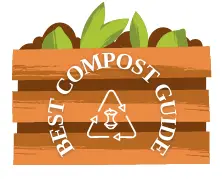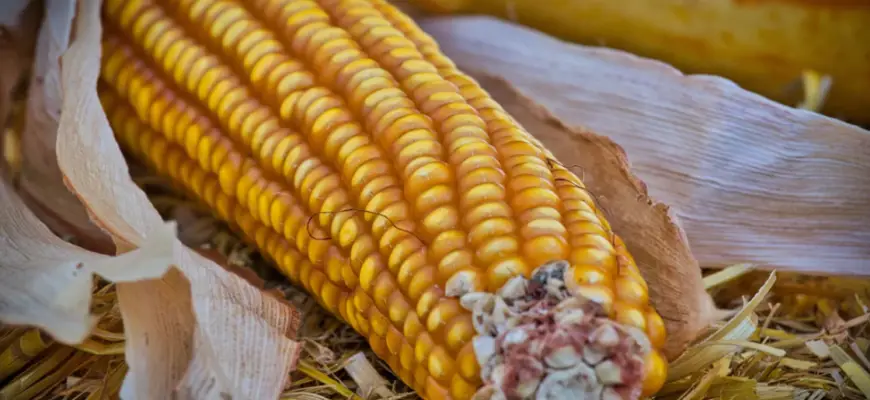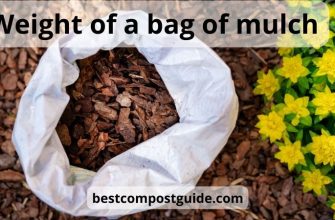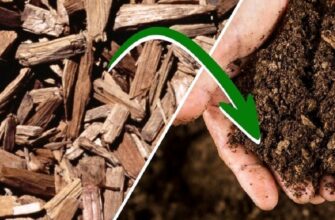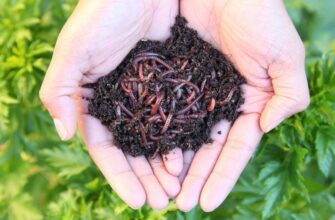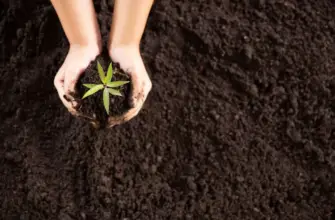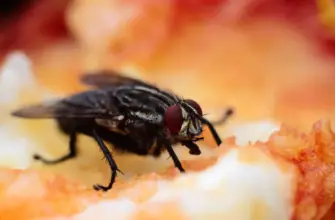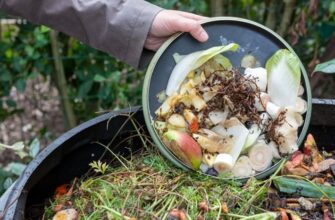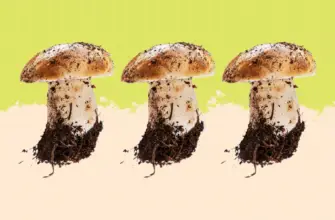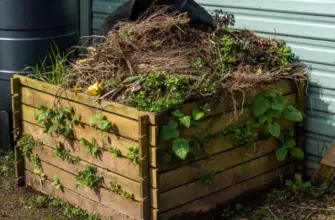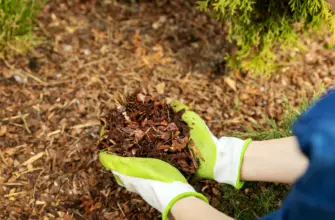Cobbed corn is loved by many people, but there is food waste produced every day from eating them.
Instead of throwing leftover corn cobs away, you can create a nutritious compost bin.
Composting corn cobs and other parts can reduce the number of leftovers, and you will use everything the corn plant can give.
Reading until the end you will find an answer to important questions like whether can you compost corn cobs and husks, how to properly degrade them and how are they beneficial in creating soil for plants.
- Can you compost corn cobs?
- Are corn cobs good for the soil?
- Are corn cobs green or brown compost?
- How long do corn cobs take to decompose?
- How can I compost corn cobs easily?
- Can you put corn husks in compost?
- How long do corn husks take to compost?
- How to use finished compost from corn cobs and husks?
- What can I do with old corn cobs?
- Do corn stalks make good compost?
- Summary
Can you compost corn cobs?
Cobbed corns are ideally appropriate for compost piles. You even can add cooked corn cobs to the compost mass. They will moisturize the heap and accelerate the decomposing.
Corn cob contains no odors. They do not have sugar, and they do not attract fruit flies or any other pest that might like to taste them.
However, they will not compost very quickly like vegetable leftovers and any other gardening waste.
Are corn cobs good for the soil?
Composting corn plant is good for blending brown and green materials since freshly grown corn provides the green ingredients needed to accelerate the composting process.
Corn cobs supply compost with nutrients essential for plants. Due to their size, corn cobs decompose slower, but help to aerate the compost bin.
Corn cob releases nutrients over time, providing a delayed boost of materials. It also helps to control the appropriate concentration of greenhouse gases in the bin.

Are corn cobs green or brown compost?
Good gardeners know that there are two types of compost: green and brown. Fresh green plants are often rich in nitrogen substances, so they are called “green”. Other parts of the plants contain a lot of carbon called “brown”.
With time green plants and leaves dry out making them lose nitrogen. Thus, they turn into brown ingredients for the compost piles.
Corn cobs are rich with carbon nutrients; therefore they are considered as a brown material like dried corn husks.
Fresh corn husks and stalks are green compost because they are high in nitrogen-based content.
Remember that the proportion of brown and green compost should be 4:1 accordingly. Too much brown compost will delay the process of decomposition by drying it out and might stop the composting entirely.
When green material is imbalanced, then high levels of moisture will heat the compost bin, causing awful smells and suppressing the good microorganisms.
How long do corn cobs take to decompose?
Corn cobs left in a garbage can last up to 18 years if they wouldn’t get composted.
While stacked in compost, fresh corn cob can decay from 3 months to over a year. It depends on the temperature of the compost bin and the size of the corn cob.
Cooked corn cobs decompose quicker due to the absorbed moisture from cooking. It can take only a few weeks to become compost.
Dry corn cobs are the slowest to degrade because they should use water from other organic materials to start decomposing. It can take up to two years and a half to fully compost corn cobs in the bin.
To speed up the process, you can wet corn cobs with water and chop them into little bits. Be careful when cutting the cob. The surface can be slippery. It is better to use a good, sturdy knife.

How can I compost corn cobs easily?
If it is of no difference to you how much time it takes to decompose corn cobs, you can throw them into the cold compost pile. Although, keep in mind that the degrading process will be slow.
For those of you who want to get the most from the corn cobs, there are some tips:
- Put corn cobs in the center of the batch, where most reactions are. It will help to compost corn cobs faster.
- It is crucial to turn your compost every day for even distribution of diverse content when composting corn cobs.
- Additionally, it lets fresh air into the heap. In such a way, turning generates heat that makes the decomposition process quicker.
- As mentioned earlier, cutting corn cobs into smaller pieces will hasten compost. The surface of the reaction will be bigger, allowing more bacteria and fungi to digest it.
After the compost is prepared, you can take pieces of unprocessed cobbed corn from the compost container, and throw them back into the heap with grass clippings to continue breaking down.
Add coffee grounds, corn kernel, and other compost ingredients to create air pockets that assist air circulation in the soil.

Can you put corn husks in compost?
Corn husks contain essential minerals for decomposing.
Fresh compost corn husks enrich the compost heap with substances such as nitrogen that accelerates the degrading process. They increase humidity levels and help microbes to actively grow in the compost pile.
In comparison, dry corn husks provide carbon-based ingredients. They soak up the excess wetness and regulate the relation between brown and green materials in the compost pile.
You can leave fresh corn husks as mulch on the land if you grow your corn plants.
If corn husks were used to make a dish, there would be food remnants left. So, it is better to decompose them separately.
How long do corn husks take to compost?
When degrading fresh corn husks, it does not matter if you shred them. Corn husks compost faster.
Just don’t flood the compost pile with too many unshredded corn husks. Any other way, the time to compost corn husks will increase.

How to use finished compost from corn cobs and husks?
You accurately spread the compost mass across your garden. Be sure to compost corn husks and cobs until they are thoroughly broken down.
Otherwise, organic matter would not be balanced in the compost pile and would clog the airways in the soil, meaning that the heap would not be as beneficial.
What can I do with old corn cobs?
If your compost is too wet, you can use old corn cobs to absorb unnecessary dampness.
Compared with fresh cobbed corn, they take much longer to degrade. To solve this problem, you can grind down dried-out old corn cobs to create a mulch.
Corn cob mulch can be put anywhere in the soil or serve as an ingredient for the compost heap. It is excellent at absorbing moisture.
Grinding mulching corn cobs with a food processor should be easier.
Also, you might use cob mulch as a biodegradable cat litter. You simply need to wash, re-dry and grind the cobbed corn.
Likewise, you can put used eco-friendly litter and cat poop in the compost.
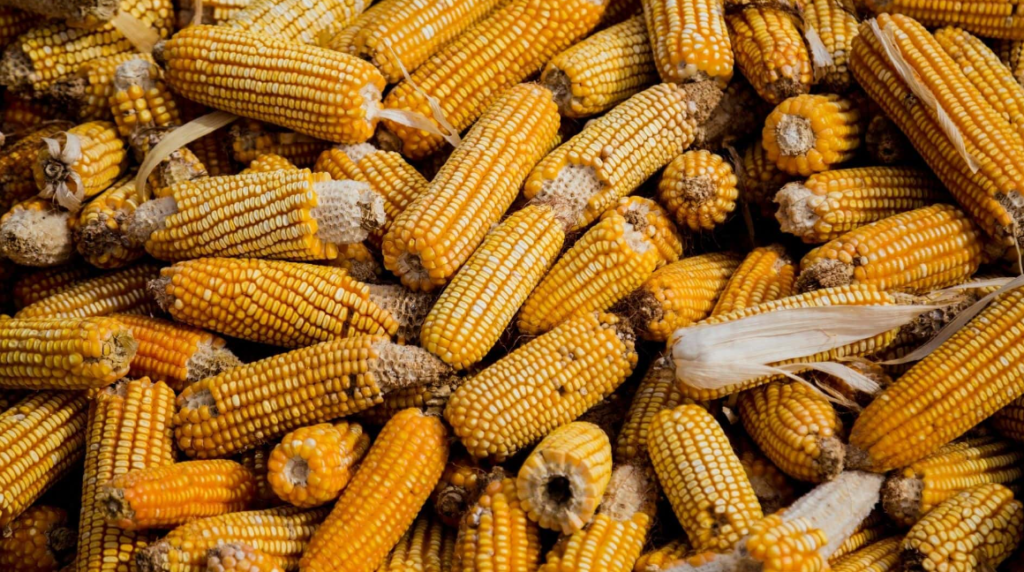
Do corn stalks make good compost?
Don’t worry. All of the parts of the corn plant can apply as a compost ingredient. Fresh corn stalks can be helpful in decomposition.
You can cut them with leaves and lay them on the soil. They will act like fertilizer.
Summary
Throwing away cobbed corn as food waste is near as losing potential ingredients for your compost.
It is effortless to decompose corn plants. It isn’t prolonged when done appropriately.
Composting corn husks and cobs will be a good bonus that makes finished compost rich with healthy organic matter for the plants.
Read also: Disadvantages of composting, and how to benefit from it?
Can you compost whole eggs: turning waste into nutrient-rich soil
